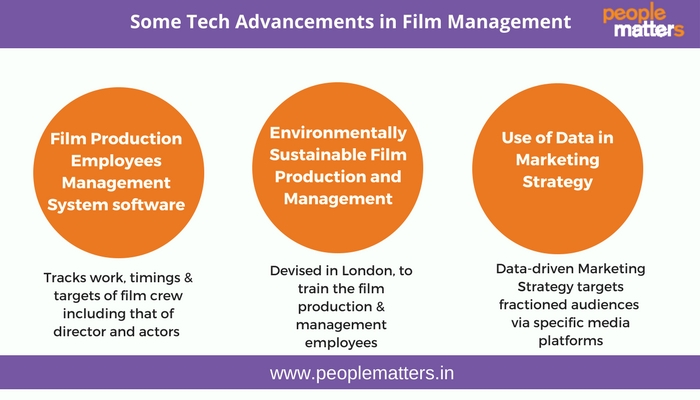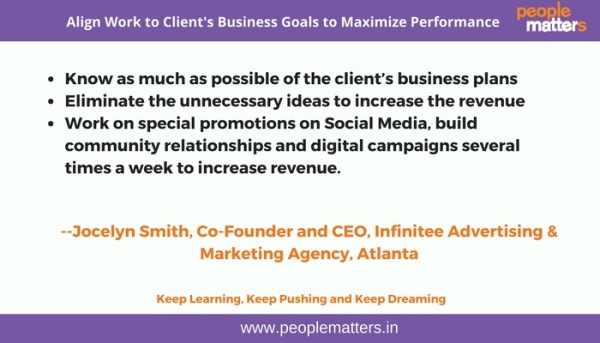How does film & culture industry manage talent?

Film & Culture Industry works on different principles than regular corporate sectors. Being highly creative and following different work schedules, artists who don’t necessarily bind themselves to set rules and patterns makes this sector difficult to align with the regular corporate-style management strategies. However, even this sector has its own trends in talent management systems, from which other sectors can learn. Following is an overview of these systems.
India has the largest film industry in the world and Indian films are watched all over the world. Further, there are several centers of filmmaking in India, which produce films in several languages, including in English. Indian cinema has completed more than 100 years and has established itself as a unique cinematic aesthetic experience in the world cinema.
However, when it comes to studying the talent management in film marketing, distribution and showcasing sectors, they emerge as very diverse sectors, ranging from single person to small, unorganized, non-Talent Management based to very large, multi-regional and multinational, formalized corporate-style organizations. It is interesting to see how this large industry and other allied sectors involved in cultural production manage their talents in the formalized organizations.
Diverse talent management matrix
The Talent Management in film and culture industry is of mixed nature. Many film companies involved in marketing, distribution and showcasing, work in an informal manner, working closely with the actors, musicians, singers, producers, and directors in a personal capacity. Some of them are one or two person companies. However, some are large conglomerates and have a full-fledged HR Management system to acquire, train and manage their employees and to meet their business targets.
Following are some of the strategies of Talent Management (TM) across film and cultural sectors:
Advanced technology has been changing the employee management system in the film industry in the last few years.

Care for local sensitivities is very important in the film industry. During recruiting of employees by the film marketing companies, care is taken to hire such staff who are aware of the local sensitivities and who can work in the extremely diverse cultural matrix of India. At the same time, these employees have to follow the baseline uniform business goals and principles of the film marketing and showcasing company.
“During recruitment process, local sensitivities are taken into account and local talent is recruited in different centers. Business leaders have to anticipate problems and attempt to resolve them in advance. We should always keep an eye on the future. We should keep track of how the market is performing and always move with the customers. We must strive to give them solutions they are looking for," said Rajesh Mishra, CEO, UFO Moviez India
Flexible working rules as talent retention incentive is an attractive strategy to retain talent in the film industry. Film and culture industry happens to employ people who don’t necessarily follow a pre-set, much-traversed working style and timings. Hence, the streamlining rules of other corporate sector organizations often don’t work well with the film and culture sector. Rajesh Mishra, CEO of UFO Moviez India shared that in order to retain talent in his organization; his employees get the flexible working opportunity. Some of these may be listed as:
- Flexible working hours
- Option to choose any 2 off days in a 5 working day week
- Free lunch on working days
- Meeting the target as the business model, not filling stipulated numbers of hours in the office
Arts activities as wellness strategy is an innovative concept being used in advertising and other culture producing sectors. Media, advertising, and digital marketing sectors have similar kinds of working styles among employees in the film marketing sector. This means that their strategies in talent retention and training have some overlaps with the film marketing sector. Media and advertising employees normally have flexible working hours to suit the nature of creative work they do. In addition, they also meet the challenge of handling advanced digital technology in their professions, which is leaning more and more on the ever-changing digital technology.
In one case, Priya Pillai, HR Manager, media.net shared the innovative strategies her organization has evolved to meet the wellness challenge of employees. Her organization has introduced arts activities as a means to lower stress levels among the employees, achieve a balanced mental and physical levels and rejuvenate their energies to enhance their performance.
Arts activities are introduced as therapy sessions. Employees are allowed to choose their own activities as part of a therapy session, depending upon their own inclinations. These therapy sessions include engagement in Zumba dance, Mandala coloring, pet therapy, Yoga and Employee Assesment Program (EAP). These therapy sessions are scheduled to be provided every Quarter and the employees shall be assessed at the end of the financial year for the impact of this arts therapy on them.
“Given this fast-paced and constantly changing lifestyle, we saw the need to build in a support system which allows employees to seek support outside of their professional and social circle to deal with any issues being faced in the workplace or outside e.g. work pressure, performance issues, managing relations at work, work-life balance etc,” said Priya Pillai, Manager, HR, media.net
Maximize performance level by aligning work to the specific business plan of the client
Film marketing and advertisement industry have to make its employers focus on the specific business plan of the clients. This is because every promotional film or advertisement is meant to take the client’s business forward. Jocelyn Smith, Co-Founder, and CEO of Infinitee Advertising & Marketing Agency gives the following model that her employees have to follow to be better marketing partners of their clients. Although specific to the film and advertising industry, it can be relevant for other industrial sectors as well –

“Timing is incredibly important – you must build up as much hype in the short space of time leading up to and around the film launch as possible," said Marcus Taylor, Film Digital Marketing Strategist
This is an industry where shooting may begin before dawn and end after sunset. Workforce may have to go into forest to shoot for long hours. Hence, compensation has to be planned accordingly, so that workforce is retained and is satisfied with work.











